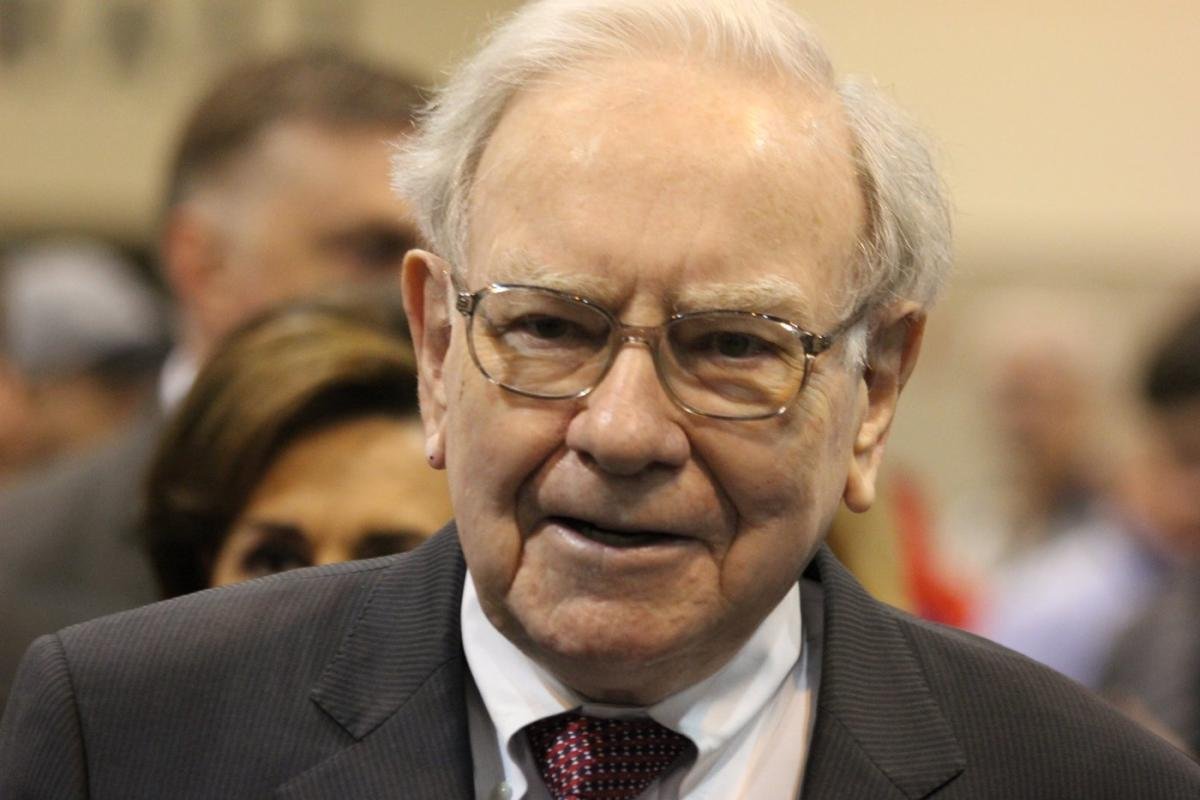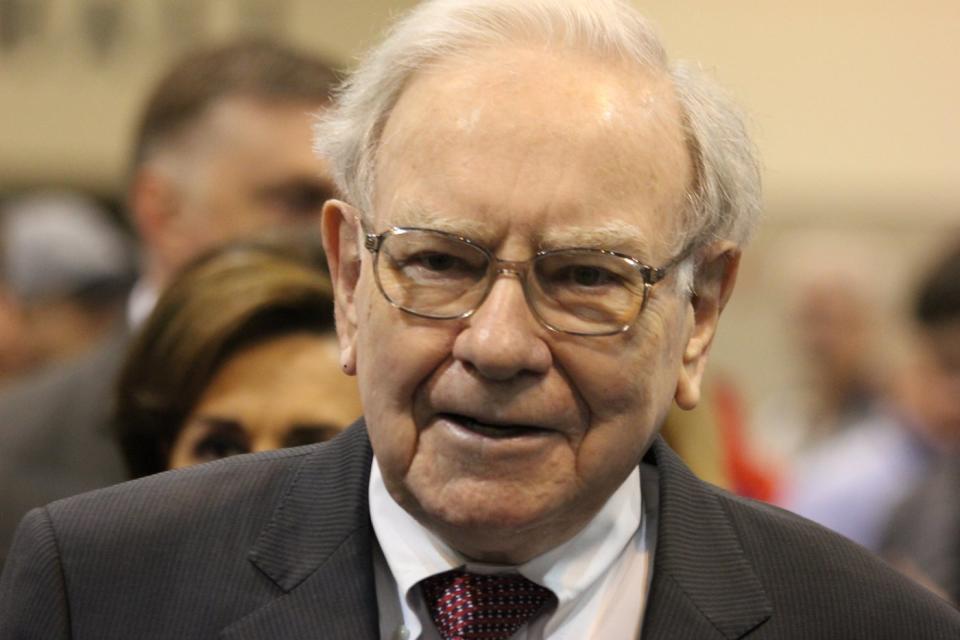Few, if any, investors are more revered on Wall Street than Berkshire Hathaway CEO Warren Buffett. The reason can be seen in the Oracle of Omaha’s returns since taking the reins in the mid-1960s.
The broad-based S&P 500 took until last year to top a cumulative 30,000% total return, including dividends. However, since Buffett became CEO of Berkshire Hathaway, the Oracle of Omaha has overseen a greater than 4,700,000% aggregate return in his company’s Class A shares (BRK.A) in under six decades (as of the close on Jan. 26, 2024). Returns like this are bound to draw a following from both professional and everyday investors.
The great thing about Warren Buffett and the $371 billion investment portfolio he oversees at Berkshire Hathaway is the transparency involved. Thanks to quarterly filed Form 13Fs with the Securities and Exchange Commission, investors have been able to effectively mirror Buffett’s trading activity for decades.
The other noteworthy aspect of Berkshire’s $371 billion portfolio is that it’s packed with profitable, time-tested companies. In other words, it’s a stomping ground for top-notch investment ideas.
As we power into the shortest month of the year, three Warren Buffett stocks stand out as screaming buys.
Sirius XM Holdings
The first Buffett stock that’s begging to be bought in February is satellite-radio operator Sirius XM Holdings (NASDAQ: SIRI). Berkshire’s portfolio added more shares of Sirius XM during the third quarter after a roughly two-year absence.
The biggest concern for radio companies is the health of the advertising market. Ad spending is highly cyclical, and businesses aren’t shy about paring back their ad budgets when the first signs of trouble become apparent. With a couple of predictive indicators and money-based metrics offering ominous warnings for the U.S. economy, there’s the potential for a challenging year.
On the other hand, Sirius XM Holdings is built differently than terrestrial and online radio operators, which gives the company a number of distinct competitive advantages in virtually any economic climate. To start with the most obvious difference, Sirius XM is the only legally authorized satellite-radio operator. Though this doesn’t mean it’s absolved from competition, it affords the company superior pricing power with its subscription services.
I’d argue that the most important differentiator between Sirius XM and traditional operators is how they generate revenue. Terrestrial and online-radio companies rely very heavily on advertising revenue. Meanwhile, Sirius XM generated only 19.2% of its net sales from advertising through the first nine months of 2023 — virtually all of which can be traced back to Pandora, which it purchased in February 2019. Subscriptions accounted for the bulk (77.2%) of its net sales.
As noted, businesses will quickly pare back their ad budgets at the first hint of economic disruption. But this isn’t the case with Sirius XM’s subscribers, who are far less likely to cancel their services than advertisers are to reduce their budgets. During economic downturns, Sirius XM would be in far better shape than its peers.
Another quick point is that some of Sirius XM’s expenses are highly predictable. Although royalty and talent acquisition costs vary from one quarter to the next, transmission and equipment costs are effectively stable. The company can continue adding subscribers without increasing these core expenses.
Lastly, Sirius XM’s forward price-to-earnings (P/E) ratio of 17 is at a decade low and represents about a 20% discount to its five-year average.
Bank of America
A second Warren Buffett stock that’s a screaming buy in February (and beyond) is banking giant Bank of America (NYSE: BAC). “BofA,” as the bank is more commonly known, is Berkshire Hathaway’s second-largest holding by market value.
The knock against bank stocks is that they’re cyclical. They’re going to ebb and flow with the health of the U.S. economy. If forecasts about a recession prove accurate in 2024, bank stocks like BofA would be expected to see an increase in loan losses and credit delinquencies.
If I can offer a bit of solace, it’s that the economic boom-bust cycle is disproportionate. While recessions are a normal and inevitable part of the economic cycle, they’re not long-lasting.
Only three of the 12 recessions since the end of World War II stuck around for at least 12 months, while none of the remaining three surpassed 18 months. Comparatively, two periods of expansion reached the decade mark over the past 78 years. Over long periods, bank stocks are perfectly positioned to grow their loan and lease portfolios.
One standout reason Bank of America has been such a slam-dunk investment is its interest-rate sensitivity. No U.S. money-center banks’ net interest income is more sensitive to changes in monetary policy than BofA. With the Federal Reserve undertaking its most aggressive rate-hiking cycle in four decades, Bank of America has benefited in the form of a higher net interest yield and billions of dollars in added net interest income each quarter.
When most investors think of Bank of America, they probably don’t associate it with technological advancement. However, 75% of all consumer households were banking digitally (online or via mobile app) during the fourth quarter of 2023. Further, just shy of half of all loan sales were completed via digital channels.
Online and mobile app-based transactions cost banks just a fraction of what in-person interactions run. As the percentage of digital users climbs, BofA has the option of consolidating some of its branches and reducing expenses.
Bank of America’s valuation also makes a lot of sense for long-term, value-oriented investors. Shares can be purchased for a shade below 10 times forward-year earnings and are right around their book value. Buying well-run bank stocks at or below book value has historically been a smart move for investors.
Coca-Cola
The third Warren Buffett stock that stands head and shoulders above its peers as a screaming buy in February (and more than likely for many years to come) is beverage giant Coca-Cola (NYSE: KO).
Every publicly traded company faces headwinds, and Coca-Cola is no exception. The biggest challenge for this 138-year-old business is contending with above-average rates of inflation. As labor, transportation, and even ingredient costs rise, there’s the possibility Coca-Cola’s operating margin could feel the pinch.
The good news here is that Coca-Cola also possesses exceptionally strong pricing power. According to Kantar’s annually published “Brand Footprint” report, Coke has been the most chosen brand on retail shelves for 10 consecutive years (as of 2022). The company has had little trouble outpacing the prevailing inflation rate with its pricing.
One of the not-so-subtle secrets to Coca-Cola’s success is its virtually unparalleled geographic diversity. It has operations in all but three countries (North Korea, Cuba, and Russia) and has more than two dozen brands in its portfolio that are generating in excess of $1 billion in annual sales. This means it’s bringing in predictable cash flow from developed markets while also enjoying an organic-growth boost from faster-growing emerging markets.
What’s more, the company views its addressable market as having doubled from $650 billion in 2017 to an estimated $1.3 trillion by 2022. Whereas established categories (e.g., sparkling soft drinks) offer mid-single-digit compound annual growth rates (CAGRs) through 2026, energy drinks and alcoholic ready-to-drink beverages can support a CAGR in the high single digits over the same stretch.
Don’t overlook Coca-Cola’s top-tier marketing, either. It’s devoted more than half of its advertising budget to digital channels and is relying on artificial intelligence (AI) to tailor ads to a younger audience. Conversely, it can rely on its former holiday tie-ins and well-known brand ambassadors to connect with mature consumers. Marketing is a big reason Coca-Cola is the most valuable consumer goods brand.
That leads to my next point: Consumer staples stocks provide predictable operating cash flow. Food and beverages are a basic necessity, which means Coke can deliver in any environment.
Shares of Coca-Cola can currently be purchased for 21 times forward-year earnings, which represents a six-year low and is modestly below its five-year average.
Should you invest $1,000 in Sirius XM right now?
Before you buy stock in Sirius XM, consider this:
The Motley Fool Stock Advisor analyst team just identified what they believe are the 10 best stocks for investors to buy now… and Sirius XM wasn’t one of them. The 10 stocks that made the cut could produce monster returns in the coming years.
Stock Advisor provides investors with an easy-to-follow blueprint for success, including guidance on building a portfolio, regular updates from analysts, and two new stock picks each month. The Stock Advisor service has more than tripled the return of S&P 500 since 2002*.
*Stock Advisor returns as of January 22, 2024
Bank of America is an advertising partner of The Ascent, a Motley Fool company. Sean Williams has positions in Bank of America and Sirius XM. The Motley Fool has positions in and recommends Bank of America and Berkshire Hathaway. The Motley Fool has a disclosure policy.
3 Warren Buffett Stocks That Are Screaming Buys in February (and Beyond) was originally published by The Motley Fool


















